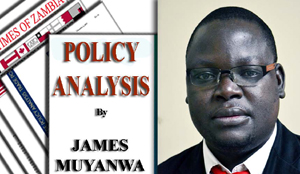 ZAMBIA has successfully issued the targeted amount of US$1.25 billion Eurobond reportedly for infrastructure development.
ZAMBIA has successfully issued the targeted amount of US$1.25 billion Eurobond reportedly for infrastructure development.
Deputy Finance Minister, Christopher Mvunga officially broke the news to the media through a statement by First Secretary for Press andPublic Relations at Zambia’s Permanent Mission to the United Nations,
Chibaula Silwamba on Thursday last week.
The Eurobond, with a coupon rate of 8.97 per cent, has an eleven-year average life with repayments in 2025, 2026 and 2027.
Truly, the bond issuance that is in excess of two times oversubscribed, demonstrates investor confidence in the economic governance of the country.
The government borrowed the US$750 million Eurobond in 2012 and the subsequent $1 billion in 2014 for which the payment are slated between the 2022 and 2024.
The latest $1.25 billion, therefore, brings the total Eurobond debt to $3 billion.
One does not know whether to rejoice or grieve over Zambia’s issuance of the third Eurobond in as many years.
Yes, the $1.25 billion debt on its own calls for neither celebration nor grief until one knows the actual use.
Frankly speaking, contraction of debts on its own is neither a positive nor negative move and in my view there is no difference with the Eurobond.
Admittedly, this is a huge debt and it is for that reason that one would not know whether celebration could be in order unless there is a firm assurance about the usage.
“As the case has been in the past, the funds will be used in infrastructure-related projects in the area of road, energy, education, health, water and transport sectors in order to better the lives of the Zambian people,” Mr Mvunga said in his comment on the debt.
If the government sticks to this and other relentless assurances by Finance Minister Alexander Chikwanda then there could be cause for celebration over the debt.
It would be progressive for the Government to strictly adhere to the programmed use of the resources as promised to the people of Zambia.
“The fiscal consolidation measures outlined to the investors in the presentations will strictly be adhered to,” Mr Mvunga reassures.
While this could be, like Mr Mvunga says, an opportune time to borrow on relatively lower interest rates given the anticipated rise in the cost of money on the international markets in the near future the ends should justify the means.
It should not be for the sake of borrowing but to meet some tangible productive targets which will help grow the economy and make repayment feasible.
Indeed, the government has two major responsibilities with the first one being that of ensuring that it pumps these funds into areas which will yield maximum economic benefits.
If the government targets the growth areas like energy, infrastructure, tourism, agriculture and others, the benefits could be enormous.
Having put the money into good use, the next and second onus is to see to it that the repayments are painstakingly made. Obviously, with the unprecedented gain of the United States dollar,
and other changes in the macroeconomic situation globally and locally, it is prudent that Government comes up with measures that will help ease repayment of the funds.
Some local experts say the first two Eurobonds money will attract in excess of $125 million interest each year, coupled with a tight-two year period when each of the 10-year bonds will mature.
The second one, however, will attract interest of about US$117.2 million annually bringing the total to about S240 million.
Guarding against putting all its eggs in one basket, the Government should reduce the need to borrow more by broadening the current tax base and by strengthening the revenue collection.
Otherwise, it would not make economic sense to continue borrowing while leaving some funds due to the State uncollected.
This is the only way the government could, while saving the loan installments, continue with its service delivery to its citizens.
Amid loan repayment obligation, the government will still need to continue constructing roads, building hospitals and schools, and providing other public goods as well as services.
Any default by the country, in terms of the loan repayment, would greatly dent the country’s creditworthiness, for which the government administrations, past and present, have worked hard to attain.
Currently, the continued attraction of the Eurobonds and other types of loans are not by accident.
They are as the result of the creditworthiness the country has acquired over the years; otherwise all lenders would be shunning any maneuvers for Zambia to borrow from them.
It is, therefore, imperative that the country does not default on the current debt stock so as to maintain its “good name” among its potential lenders, and ditch “connections” with Greece. For contribution call: 0977 246099, 0955 431442 or e-mail: jmuyanwa@gmail.com






